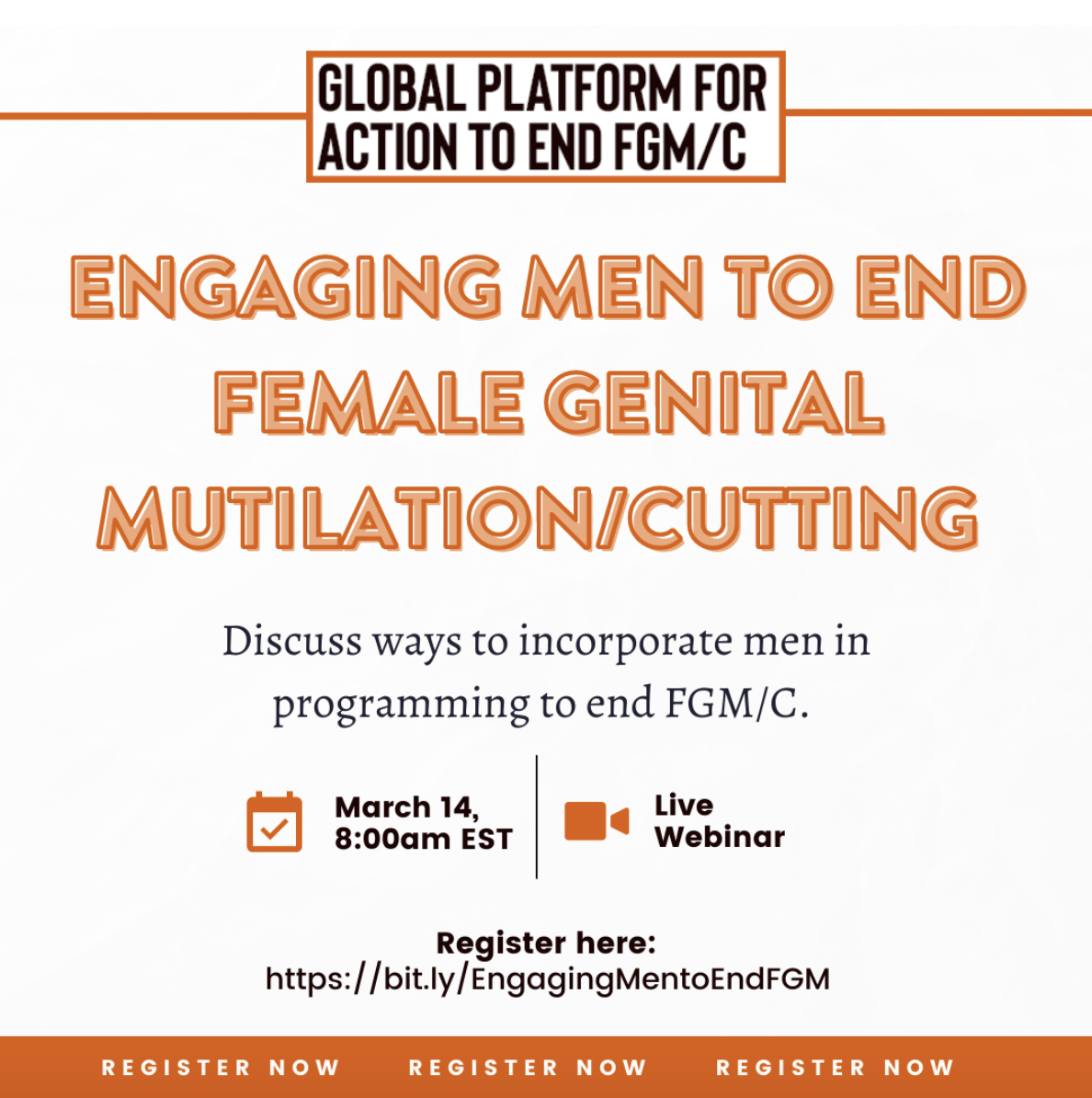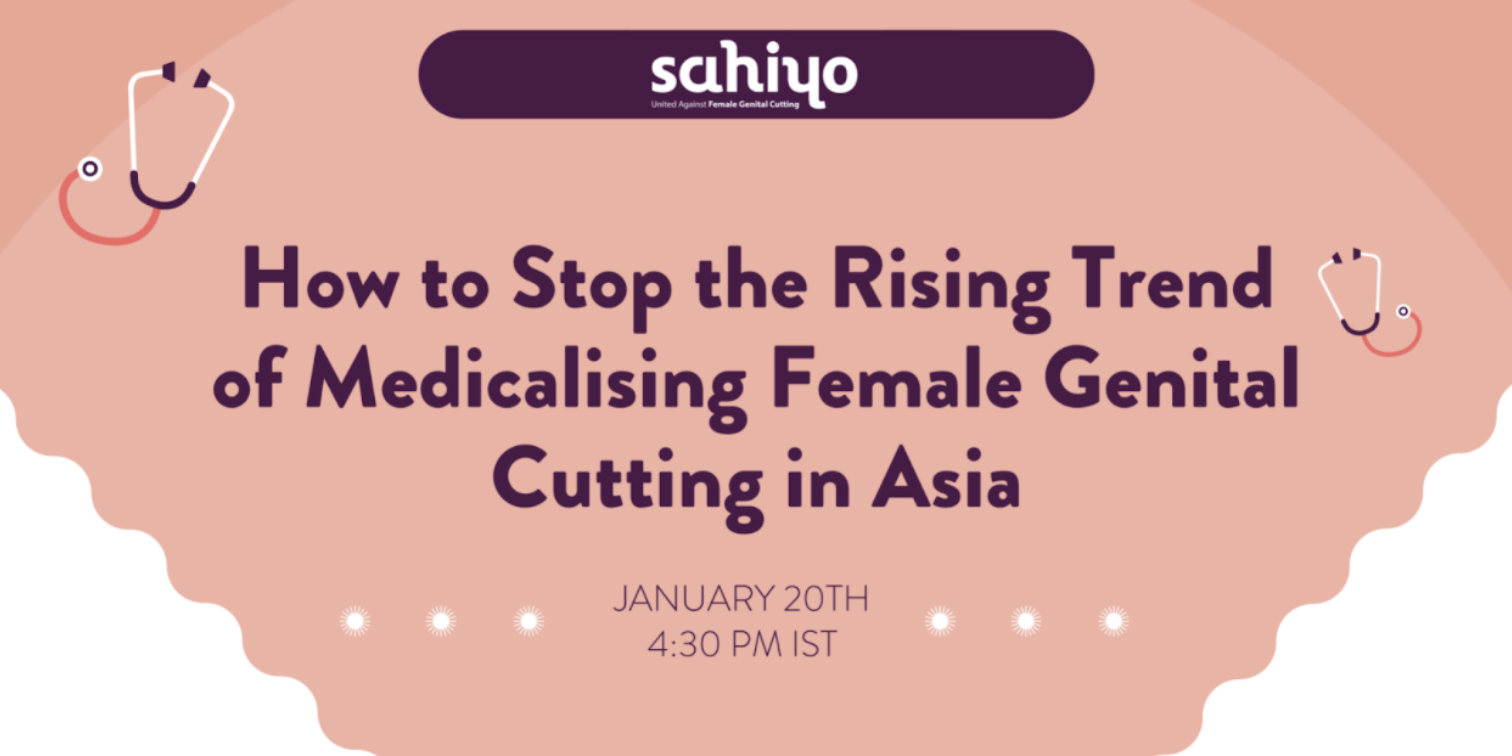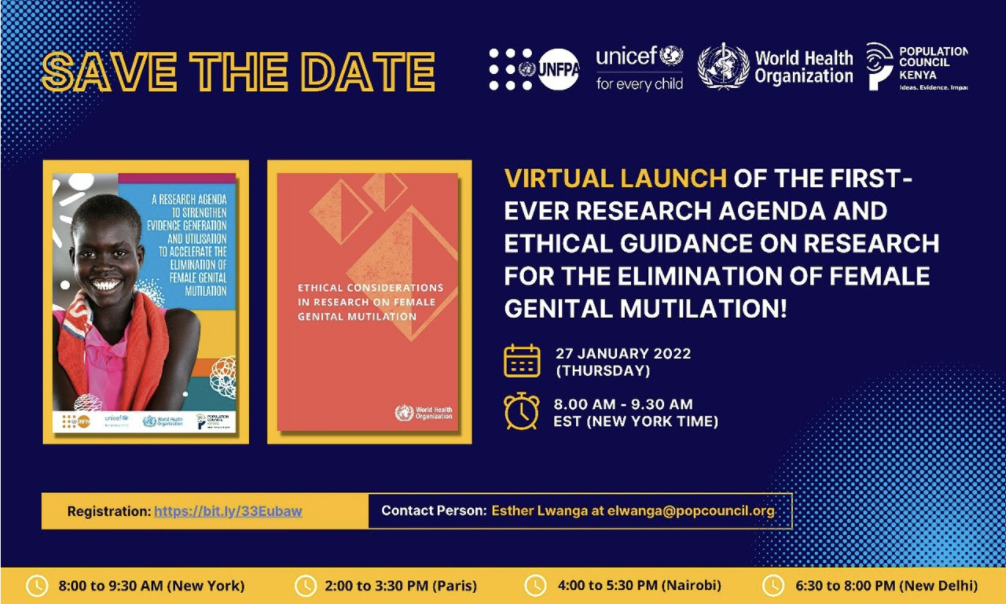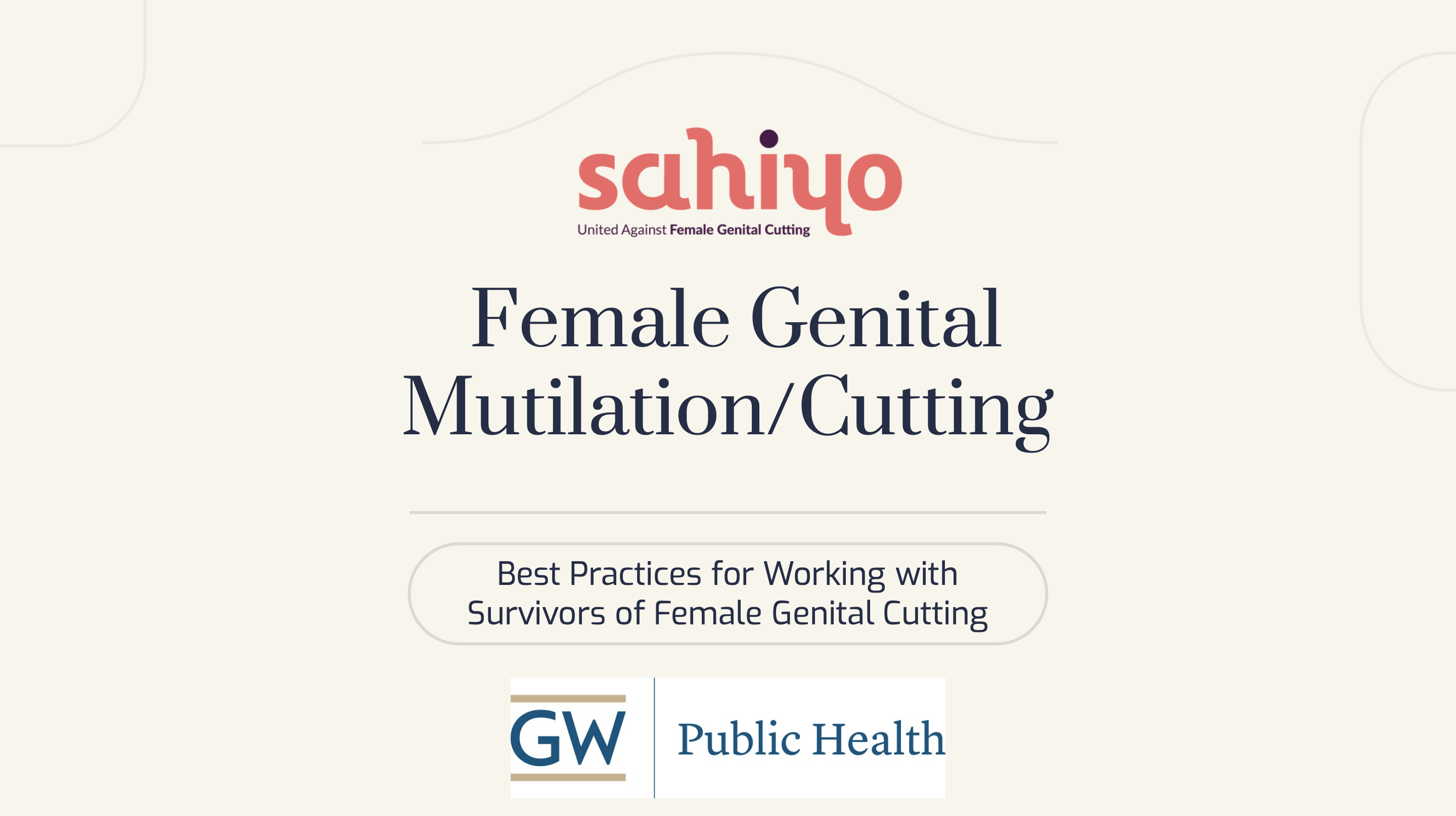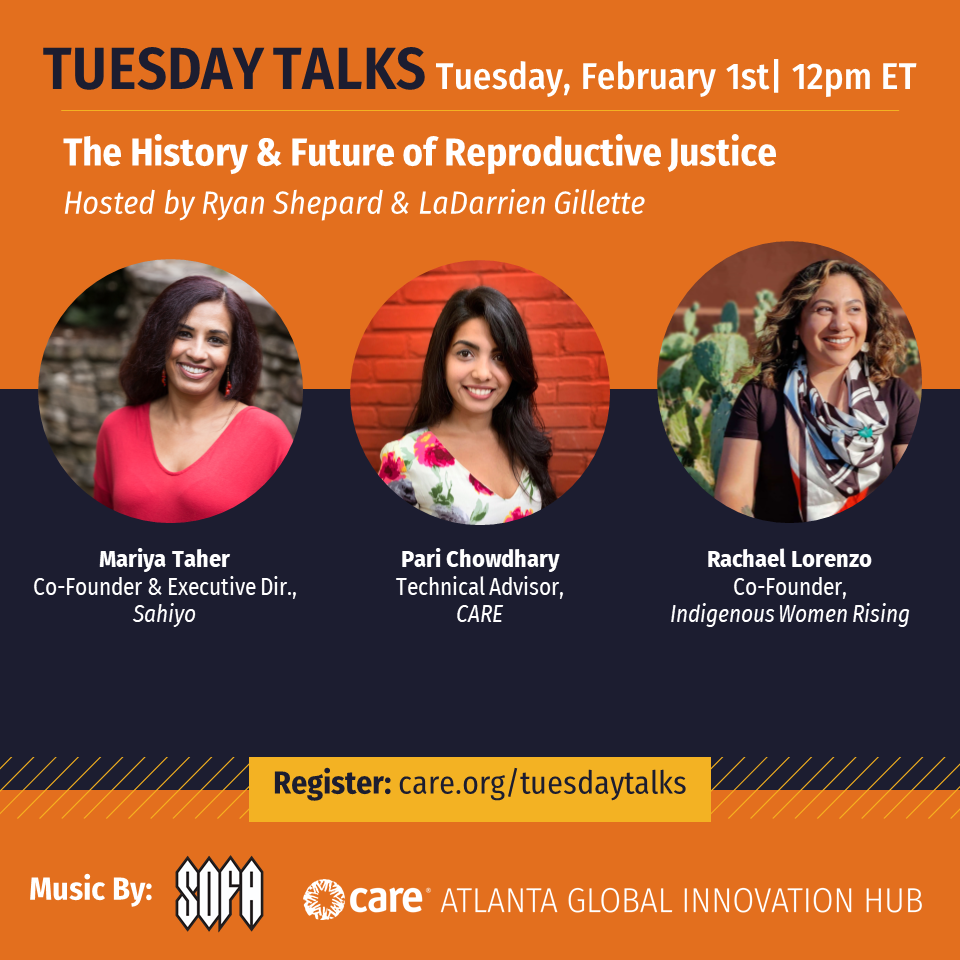The Global Platform for Action to End FGM/C is pleased to invite you to our NGO CSW Parallel Event on the topic of ‘Engaging Men to End Female Genital Mutilation/Cutting'.
Event Details:
Date: 14th March 2022
Time: 08:00 AM EST
Registration: https://bit.ly/EngagingMentoEndFGM
About the Event:
Female genital mutilation/cutting (FGM/C) affects over 200,000,000 women and girls globally. The Global Platform for Action to End FGM/C developed a call to action to advocate for greater prioritization, resourcing, and action to end female genital mutilation/cutting (FGM/C). Recognizing that FGM/C is a social and gendered norm, upheld through complex systems of patriarchy and tradition, the call to action includes acknowledging that we cannot bring about its end without engaging everyone, including boys and men. During this event, we will gather advocates and experts who have experience building male engagement programs to discuss ways of incorporating men in programming to end FGM/C.
About the The Global Platform for Action to End FGM/C
In June 2019 civil society organisations, champions, survivors and other grassroots representatives came together at the Women Deliver conference to develop a global Call to Action to end female genital mutilation/cutting (FGM/C). The event was co-ordinated through a core group of globally representative organisations that managed logistics: Amref Health Africa, Coalition on Violence Against Women, End FGM Canada Network, End FGM European Network, Equality Now, Orchid Project, Sahiyo, The Girl Generation, The Inter-African Committee on Traditional Practices, The US End FGM/C Network, There Is No Limit Foundation and Tostan. The Call to Action was the result of several months of global consultation via an online survey.
Version française // FRENCH
Événement à venir le 14 mars avec l’ONG CSW: Mobiliser les hommes pour mettre fin aux mutilations génitales féminines
La Plateforme Mondiale d’Action pour mettre fin aux MGF/E est ravie d’annoncer que nous organiserons un événement avec l’ONG CSW sur le sujet de ‘Mobiliser les hommes pour mettre fin aux mutilations génitales féminines / excision (MGF/E)’.
Renseignements sur l’événement :
Date : 14 mars 2022
Heure : 8h, heure de l’Est
Inscription : https://bit.ly/EngagingMentoEndFG
La pratique du MGF/E est une norme sociale profondément ancrée dans les sociétés et les communautés dans lesquelles elle se produit. Il s’agit d’une question sexospécifique, soutenue par des systèmes complexes de patriarcat et de tradition.
La MGF/E touchant plus de 200 millions de femmes et de filles dans le monde, La Plateforme Mondiale d’Action pour mettre fin aux MGF/E plaide pour une plus grande hiérarchisation, ressources et action. Cette coalition d’organisations de la société civile, des champions, des survivants et d’autres organisations communautaires reconnaît que nous ne pouvons pas mettre fin à cette pratique sans impliquer tout le monde, y compris les garçons et les hommes.
L’événement portera donc sur l’importance de l’engagement des hommes. Au cours de cet événement, nous réunirons des défenseurs et des experts qui ont de l’expérience dans l’élaboration de programmes d’engagement des hommes afin de discuter des différentes façons d’intégrer et faire participer les hommes dans les programmes visant à mettre fin aux MGF/E.
Nous croyons que la conversation a le pouvoir de saisir l’expérience, de façonner l’opinion et de créer le changement. Nous vous invitons donc à nous rejoindre dans cette conversation.

